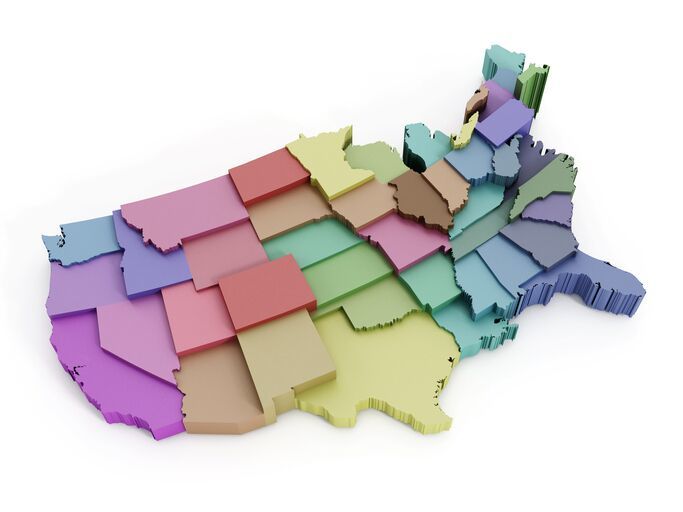Choosing where to go to law school is one of the most important decisions of any lawyer's life. When deciding between an in-state and out-of-state school, there are many factors to consider, and each option has certain advantages and disadvantages that may sway your final choice:
In State vs. Out-of-State Expenses
The following is a breakdown of in-state versus out-of-state expenses, from tuition, to cost of living, to travel.
College Tuition
Here's an example comparing in-state and out-of-state tuition from the University of Virginia (UVA).
In-State: Tuition at in-state schools is less expensive. In-state tuition at UVA is $58,300.
Out-of-State: Tuition at out-of-state schools is more expensive. Out-of-state tuition at UVA is $61,300.
Cost of Living
In-State: Depending on the location, an in-state school might mean cheaper rent, groceries, and incidentals. You may also be able to spend part of your experience at home to save on the expenses above.
Out-of-State: An out-of-state tuition cost might mean even more debt to repay expenses for such things as a more expensive apartment, pricier cheese, and a costlier social life. If you put down roots in a more expensive city than where you come from, this will translate to a higher cost of living beyond law school. Attending law school at NYU and hope to live there afterwards? Per CNBC, the average home in New York City costs $1,621,965. Compare that to Austin, Texas, where the average home goes for $396,919, according to Realty Austin.
Travel Expenses
In-State: Going to school in-state means you'll spend less money on plane or bus tickets home to see family and friends on breaks and holidays.
Out-of-State: Attending law school out-of-state means regularly shelling out cash for trips home during the holidays.
Job Prospects
In-State: An in-state school may limit you to job opportunities close to home. That's great if you call a place like New York City home, but not so great if you're from a rural area. On the other hand, if you go to the best law school in a smaller job market, you will be the most attractive hire with less competition.
Out-of-State: An out-of-state school in a big city or bigger job market may lead to more opportunities after graduation, making the price tag of an out-of-state school in NYC, DC, or Chicago suddenly more justifiable. Networking starts on campus. So, an out of state school may be the smarter play.
In-State vs. Out-of-State Bar Exam
The law school you attend will cover the laws of the state in which it operates, which may help you pass the Bar in that state. So, if you're planning to take the Bar in a state other than that of your school, you won't have a leg up.
Lifestyle
You should go to law school in a location that matches your expectations for daily life. Riding the New York City subway every day is a grueling, tiring, jam-packed way of getting around. It's also cheap and convenient, but it's not for everyone. If the packed streets and subways of NYC are not for you, opt for a law school that's in a slower, smaller setting. Somewhere that lets you have a car, a backyard for your dog, or access to hiking or skiing.
Similarly, think about the everyday offerings of a school's location, from restaurants and comedy clubs to theaters and museums.
And think about demographics, too. If diversity is important to you, look at the makeup of the student body, faculty, and city to see if it matches what you're looking for.
Being close to family and friends is important, too. Think about your needs not just during law school, but also in the long term. If you stay in the location where you attend law school—raising a family there one day—how will it affect your relationships with your friends and family? If you go in-state, these relationships will be easier to nourish. It may be harder to do so out of state.
Is Tuition Cost a Main Factor?
Note that if price is your main factor, it is possible to establish residency status in many states, meaning that, if you choose to attend an out-of-state law school, you could achieve residency by the following year, bringing your tuition costs down for your final two years.
Every state has different rules, and Top Law Schools has broken it down for you, listing the following states as places it's easy to establish residency: California, Colorado, Kentucky, Missouri, New Jersey, and Utah. However, in the following states it's hard to establish residency: Arizona, Illinois, Indiana, Maryland, Michigan, North Carolina, Ohio, Tennessee, Texas, Virginia, Washington, and Wisconsin.
May the odds be ever in your favor!








